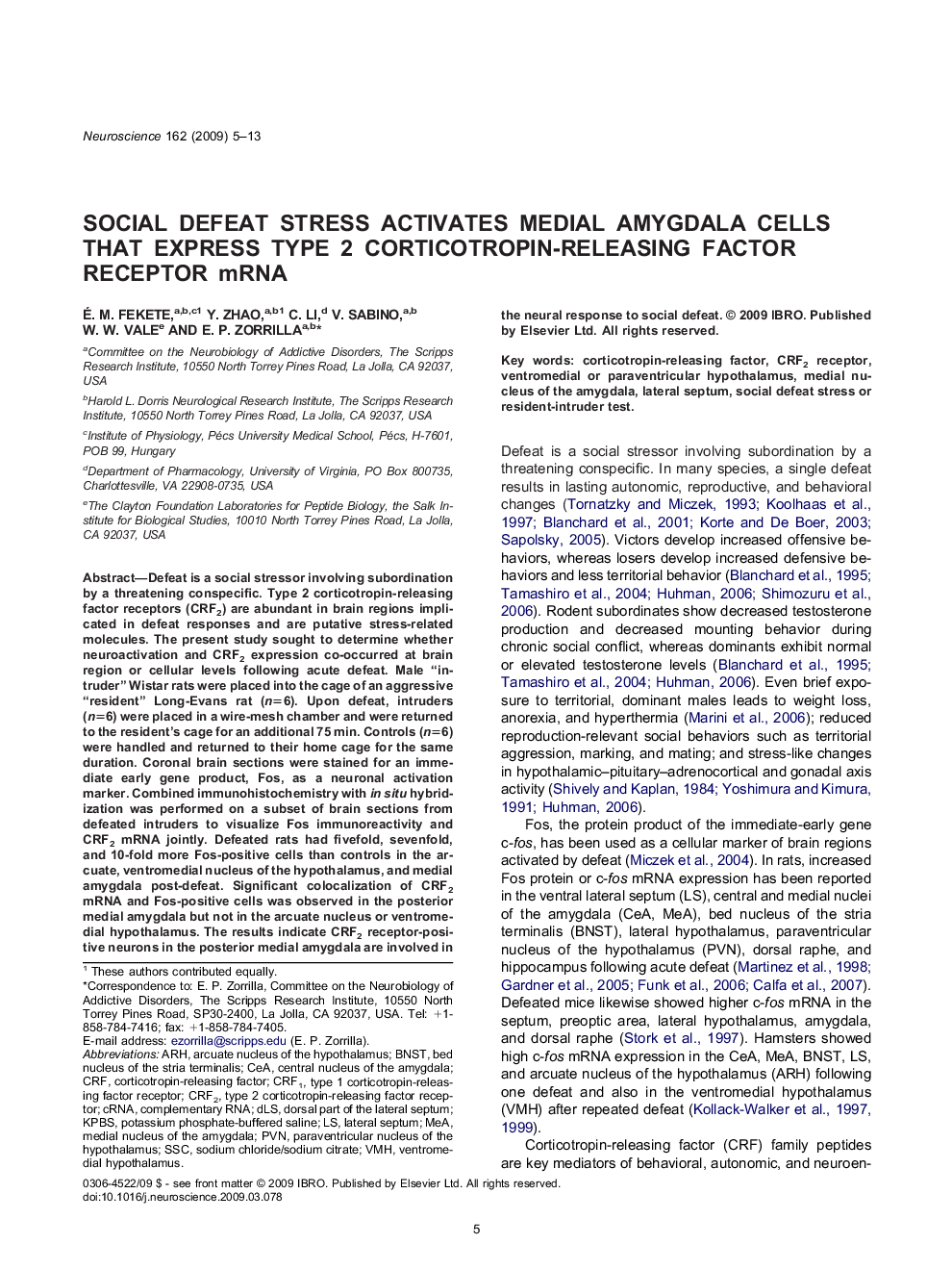| Article ID | Journal | Published Year | Pages | File Type |
|---|---|---|---|---|
| 4340362 | Neuroscience | 2009 | 9 Pages |
Defeat is a social stressor involving subordination by a threatening conspecific. Type 2 corticotropin-releasing factor receptors (CRF2) are abundant in brain regions implicated in defeat responses and are putative stress-related molecules. The present study sought to determine whether neuroactivation and CRF2 expression co-occurred at brain region or cellular levels following acute defeat. Male “intruder” Wistar rats were placed into the cage of an aggressive “resident” Long-Evans rat (n=6). Upon defeat, intruders (n=6) were placed in a wire-mesh chamber and were returned to the resident's cage for an additional 75 min. Controls (n=6) were handled and returned to their home cage for the same duration. Coronal brain sections were stained for an immediate early gene product, Fos, as a neuronal activation marker. Combined immunohistochemistry with in situ hybridization was performed on a subset of brain sections from defeated intruders to visualize Fos immunoreactivity and CRF2 mRNA jointly. Defeated rats had fivefold, sevenfold, and 10-fold more Fos-positive cells than controls in the arcuate, ventromedial nucleus of the hypothalamus, and medial amygdala post-defeat. Significant colocalization of CRF2 mRNA and Fos-positive cells was observed in the posterior medial amygdala but not in the arcuate nucleus or ventromedial hypothalamus. The results indicate CRF2 receptor-positive neurons in the posterior medial amygdala are involved in the neural response to social defeat.
